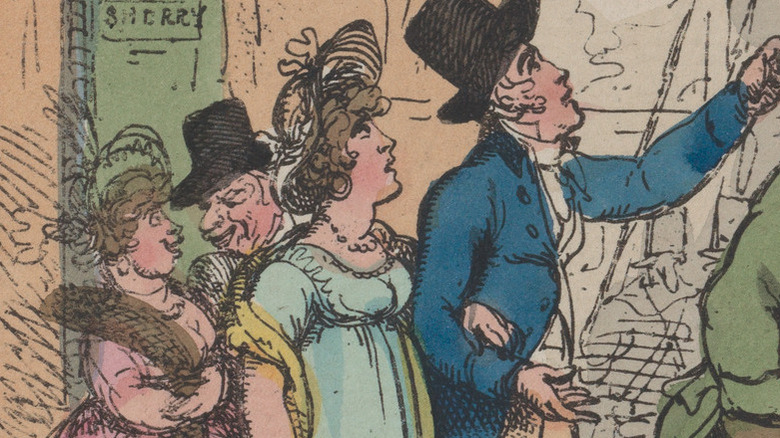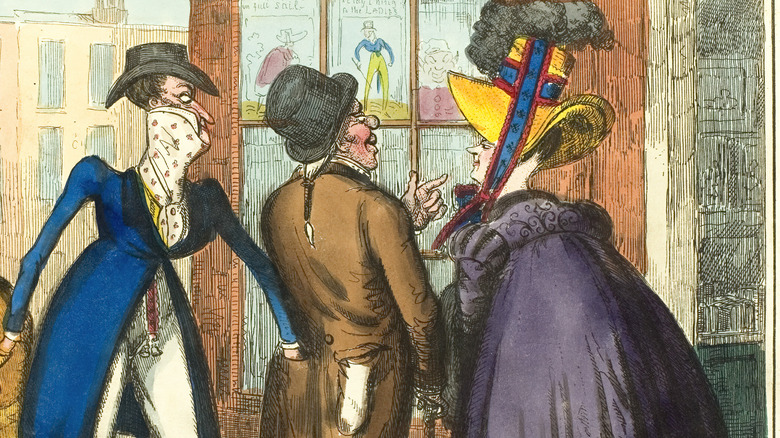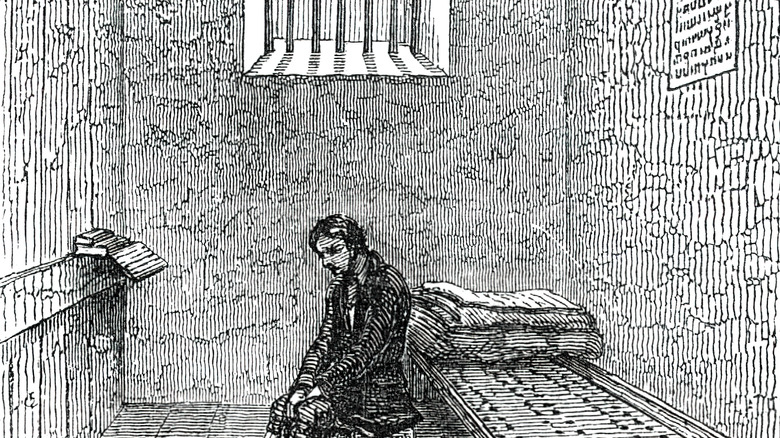What Is The Origin Of The Phrase Smart Alec?
We all know a smart alec or two, but few of us know where the term comes from. You may be surprised that the term "smart alec" comes not only from a specific place (New York City), but from a specific time (1840s). Not only that, the term was originally used to describe a particular person who lived in that specific place and time. But before we get into that history, let's focus on the term itself.
Even though "smart" as a descriptor is often positive, "smart alec" is never meant as a complement. It is most often used in the sentence: "Don't be a smart alec." Why the negative connotation? Whoever the original smart alec was, he must have been a notorious prankster. He must have been someone you don't want to be compared to. Well, yes. According to Mental Floss, that's exactly who the original smart alec was.
Smart alec is a common phrase
Before we go further, let's define the phrase exactly. The slang term "smart alec" is usually a noun, but it can also be an adjective with a hyphen, as in, "Take back that smart-alec remark." Merriam-Webster defines the adjective 'smart-aleck' as "making light of something usually regarded as serious or sacred," or "marked by the use of wit that is intended to cause hurt feelings."
In its noun form, "smart aleck" (with "alec" an acceptable variation) means "an obnoxiously conceited and self-assertive person with pretensions to smartness or cleverness." The Cambridge Dictionary goes even further to state in the definition that the person pretending to be clever does this "in a way that annoys other people." Finally, The Urban Dictionary defines "smart alec" as "a nicer way to say 'smart a**.' You can use this in an office or when kids are around," the Urban Dictionary suggests.
The common phrase has its roots in a shady past
How curious that the expression "smart alec," which The Urban Dictionary considers to be a family-friendly phrase, has its origins in a sinister tale of true crime and deception. This absolutely true story, dug up by a language historian in 1985 (per Mental Floss), involves theft, bribery, and prostitution. But we're getting ahead of ourselves. Suffice it to say for now that the expression was inspired by a con-man living in New York City in the 1840s. This man was smart; a little too smart in the end, and you may have guessed his first name by now.
Thanks to the extensive research of Professor Gerald Cohen and his book "Studies of Slang Part 1" (via Mental Floss), we now know that the original smart alec was a man named Alec Hoag. He was married to Melinda, though she escaped notoriety until Professor Cohen discovered her tale a century later.
The tale of Alec and Melinda Hoag
Melinda Hoag was a sex worker in a city full of sex workers, if 19th-century writers are to be believed. Reporter George Foster published his sensational nonfiction book "New York by Gas-Light" in 1850, detailing the many dens, bars, and other notorious gathering places for New Yorkers after dark. Foster, like other 19th-century writers (think Charles Dickens and Victor Hugo), was sympathetic to the sex worker's plight. He wrote (via Caitlin Duffy Blog) that the women were seduced unwittingly into a life of "depravity" that led them "in turn to the brothel, the hospital, the penitentiary, and the grave."
Melinda Hoag's career roughly followed this arc. Though her brothel was her own home, and we don't know specifically if she went to the hospital, she did end up in the penitentiary, according to Mental Floss. Alec found clients for Melinda, and the two of them worked in tandem to rob unsuspecting customers. Melinda's was a different kind of sex work because her customers did not pay voluntarily. Her job was to distract the men while Alec made away with their valuables.
The pair had a perfect scheme
According to Professor Gerald Cohen (via Mental Floss), Melinda and Alec Hoag started off working the alleyways in New York City. Melinda reportedly lured each man down the alleyway and picked his pockets. As she embraced the man, she passed the money to her husband, who quietly waited in the shadows.
Eventually the couple settled on a more elaborate scheme: Melinda would invite men up to her room. As detailed by 19th-century editor George Wilkes in the "Subterranean" (via Mental Floss): "Melinda would make her victim lay his clothes ... upon a chair at the head of the bed near the secret panel, and then take him to her arms and closely draw the curtains of the bed. As soon as everything was right and the dupe not likely to heed outside noises, Melinda would give a cough, and the faithful Alec would slyly enter [and] rifle the pockets ..." Soon thereafter, Alec would appear again playing a jealous husband who had just returned home, and the victim would leave quickly without checking his pockets.
Don't be a smart alec
Alec Hoag delayed prison for himself and Melinda as long as he could by paying off local police, according to Professor Gerald Cohen (via Mental Floss). When he fell on financial hard times and was no longer able to pay off the police, that's when his luck ran out. Both Alec and Melinda Hoag were arrested. Alec reportedly escaped with help from his brother, but there is no word on Melinda's fate. Alec went back to prison after police captured him again.
It was the police who gave Alec his nickname that lived so long after him, according to Mental Floss. They began calling him "Smart Alec" because he thought he was smarter than they were: paying them off for so long, then escaping only to be recaptured. Police even held him up as a cautionary tale for others trying to outsmart the enforcers of the law: "Don't be a Smart Alec."
Mental Floss notes that the expression appeared in print as early as 1865, and eventually found its way into popular slang. Over the years Alec Hoag was forgotten. The expression was separated from the man who inspired it, so his name was spelled in lowercase. Just the attitude of smart alec remained.





